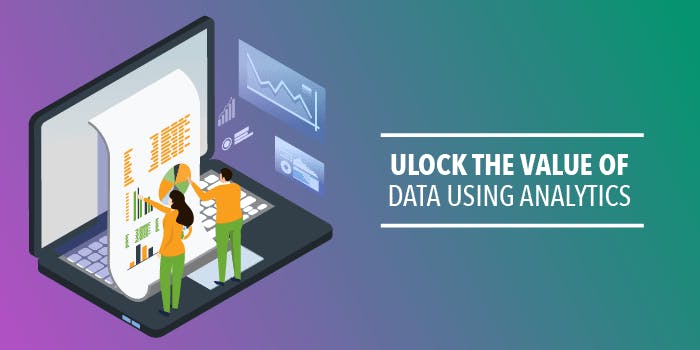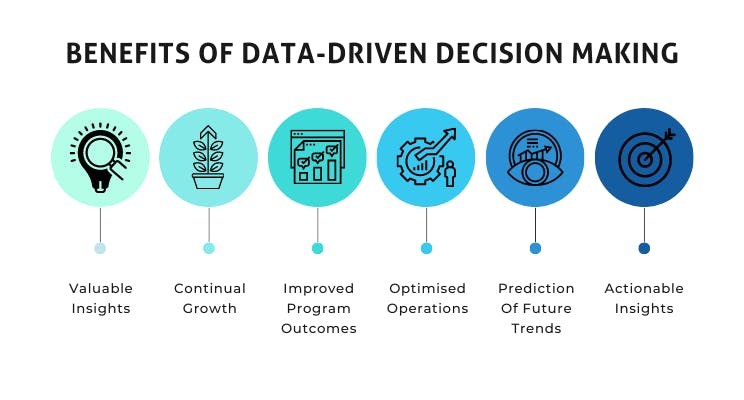In the era of digitalization, organizations across industries are continuously striving to stay competitive and relevant. This drive for success has led to the emergence of digital transformation, a process that involves adopting digital technologies and strategies to reshape business operations and enhance customer experiences. Among the many tools and techniques available, data analytics stands out as a powerful force driving this transformative journey. In this blog, we will delve into the world of data analytics and explore its role in digital transformation. We will also examine how organizations can leverage data for insights and decision-making, along with real-life case studies highlighting successful implementations.
Understanding Data Analytics and Digital Transformation
Data analytics refers to the process of extracting actionable insights from raw data to aid decision-making and optimize business operations. By analyzing vast amounts of data, organizations can uncover patterns, trends, and correlations that provide valuable insights into customer behaviour, market trends, and operational efficiency. This information acts as a compass, guiding organizations toward informed decision-making and strategic planning.

Digital transformation, on the other hand, encompasses a broad range of activities aimed at incorporating digital technologies into various aspects of an organization. It involves reimagining business processes, embracing innovation, and creating a customer-centric approach to stay ahead in the digital age. Data analytics plays a pivotal role in this transformational journey by providing organizations with the necessary intelligence to drive innovation, improve operational efficiency, and enhance customer experiences.
Leveraging Data for Insights and Decision-Making
- Enhanced Customer Understanding:
Data analytics enables organizations to gain a deep understanding of their customers. By collecting and analyzing data from multiple sources, such as social media, customer surveys, and purchase history, organizations can identify customer preferences, behaviours, and pain points. This valuable information helps in personalizing marketing strategies, developing targeted campaigns, and delivering customized experiences, thereby fostering customer loyalty and satisfaction.

- Predictive Analytics:
One of the key benefits of data analytics is its ability to forecast future trends and outcomes. By leveraging predictive analytics models, organizations can make data-driven predictions about customer behaviour, market trends, and business performance. This empowers decision-makers to anticipate market shifts, proactively address customer needs, optimize inventory management, and seize emerging opportunities.
- Operational Efficiency:
Data analytics allows organizations to optimize their operations by identifying inefficiencies and bottlenecks. Through detailed analysis of operational data, organizations can streamline processes, reduce costs, and improve resource allocation. For example, predictive maintenance models can analyze equipment data to identify potential failures in advance, enabling proactive maintenance and minimizing downtime.
- Agile Decision-Making:
In today's fast-paced business environment, quick and informed decision-making is crucial. Data analytics provides real-time insights, empowering decision-makers to make agile and data-driven decisions. By having access to accurate and up-to-date information, organizations can respond swiftly to market changes, identify emerging trends, and capitalize on opportunities.
Case Studies Demonstrating Successful Use of Data Analytics in Digital Transformation
- Retail Industry - Amazon:
Amazon, the e-commerce giant, is renowned for its effective use of data analytics. By analyzing customer browsing patterns, purchase history, and demographic information, Amazon provides personalized product recommendations to its customers. This data-driven approach enhances the customer experience, increases sales, and drives customer loyalty.
- Healthcare Industry - Mayo Clinic:
Mayo Clinic, a leading healthcare organization, leverages data analytics to improve patient outcomes. By analyzing patient data, clinical trials, and research findings, Mayo Clinic identifies patterns and correlations to develop personalized treatment plans. This data-driven approach not only improves patient care but also contributes to medical research and innovation.
- Manufacturing Industry - General Electric (GE):
General Electric (GE) utilizes data analytics to optimize its manufacturing processes. By collecting and analyzing data from sensors embedded in their equipment, GE can monitor performance, predict maintenance needs, and identify areas for efficiency improvement. This data-driven approach helps GE reduce downtime, minimize costs, and enhance overall productivity.
Conclusion
Data analytics has emerged as a crucial driver of digital transformation. By harnessing the power of data, organizations can gain valuable insights, improve decision-making, and drive innovation. From understanding customer preferences to optimizing operational efficiency, data analytics offers a multitude of benefits for organizations embarking on their digital transformation journey. The case studies of Amazon, Mayo Clinic, and General Electric demonstrate how data analytics can be effectively utilized across various industries to achieve remarkable results. As organizations continue to embrace digital transformation, leveraging data analytics will be key to staying competitive in the dynamic digital landscape.
We have only begun to scrape the surface of data analytics' enormous potential in the area of digital transformation in this blog. The power of data analytics will only increase with time and shape the future of organisations all around the world as technology advances and data becomes increasingly more plentiful. We appreciate you reading our site and your time. I hope I was able to offer some insightful knowledge. Please feel free to ask any more questions or share thoughts in the comments.


